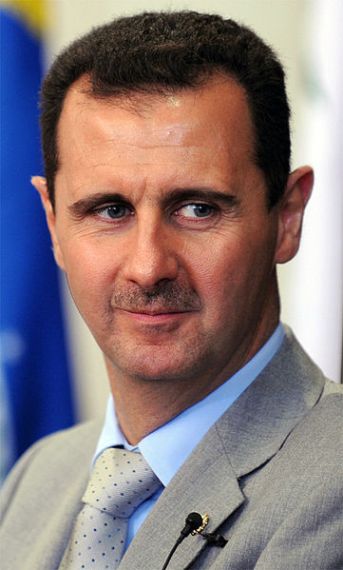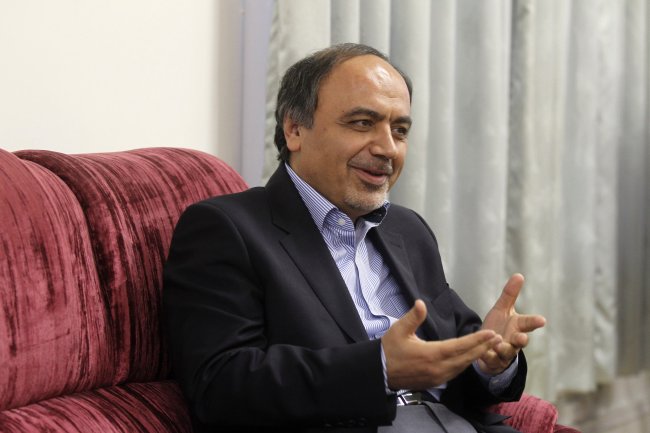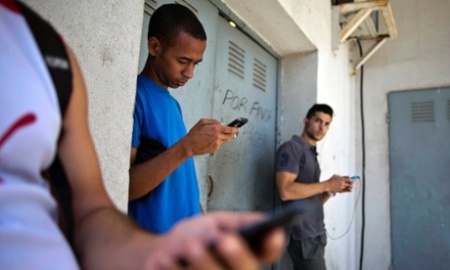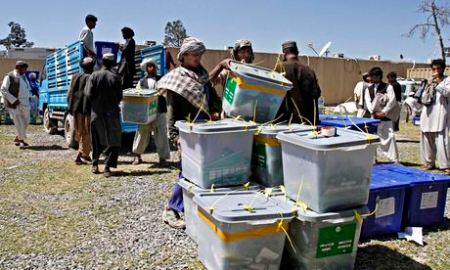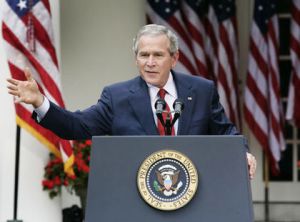
By John Haltiwanger
The ongoing crisis in Iraq has prompted us to revisit a question that has been at the heart of international relations since the end of WWII: Should the United States act as world police?
It seems that whenever there is a crisis in the world, the US is viewed as either the cause or the solution. Even if the US intervenes and succeeds – a very subjective analysis, as success depends largely on who reaps the benefits – it will inevitably be criticized.
The fact of the matter is there are many competing interests in this world and it is nearly impossible to satisfy everyone through any single action.
As an economic and military superpower, the US will almost always be expected to act, even if it makes matters worse. Recently, we have seen this unfold in Syria, Ukraine, and now, once again, in Iraq.
The current crisis in Iraq is a product of the misguided policies of Western powers that date as far back as WWI.
Following the collapse of the Ottoman Empire at the end of that war, Western powers arbitrarily carved up the Middle East in a manner that served their own interests without considering the complex ethnic and religious divisions in the region.
Western hubris, arrogance and greed are to blame for many of the problems we have witnessed in the Middle East over the past century.
Yes, it is true that many corrupt regimes have come to power in this region, which has certainly not helped improve the situation there. Still, who do you think put them into power and helped sustain their rule?
US policy in the Middle East has followed this trend. It has been a perpetual story of pursuing short-term interests while creating long-term problems. Iraq is a prime example.
It is a country with stark divisions across religious and ethnic lines that create an extremely convoluted situation on the ground.
No degree of military might, power and resources will bring stability to a region that must find its own path to peace, given its current struggles are a product of a long and tumultuous history of tribal conflict.
One cannot solve a complex situation like by relying on nothing more than brute force. The “bull in a china shop” foreign policy of the Bush administration, or the Bush Doctrine, is not a prudent way to approach any international crisis.
Just how complex is the situation in Iraq right now? Most of the West can’t even agree on a common nomenclature for its newest enemy. Is it ISIL, ISIS or Da’ish.
Westerners will never have an intimate understanding of the Middle East because the region has always been viewed as alien. There has never been sincere engagement. The West’s approach to the Middle East has been perpetually patronizing or paternalistic, yet it still wonders why extremism there still flourishes.
You have to engage people as your equal in order to truly foster respectful and healthy dialogue and breed unity and stability in the future.
Obama just sent 300 military “advisors” to Iraq. First of all, it is evident these individuals are not simply advisors, but rather special forces dispatched to spur the Iraqi military into action.
Moreover, one wonders what “advice” they might offer, given the fact that the United States is in many ways directly responsible for destabilizing the region.
That said, it is unclear what course of action the US government will ultimately take in this situation. A number of options have been put on the table, including cooperating with Iran against this common enemy.
US leaders constantly talk about the need to preserve “American interests” in the region. And some have argued that it would be against “American interests” to cooperate with Iran, as this would allow the country to establish regional hegemony, a deeply concerning prospect for America’s allies.
What this really means is that members of the US government likely don’t want to antagonize AIPAC and other pro-Israel entities that have a chokehold on the American legislature and don’t want to see Iran gain influence in the international arena.
Frankly, it’s laughable to say that the United States can’t cooperate with Iran on the basis of its corrupt, totalitarian government.
Throughout history, the United States has frequently cooperated with authoritarian regimes around the world, and in some cases, have helped them rise to power for reasons of convenience or in pursuit of advancing “American interests.”
This not to say that the United States does no good in the world. America has substantial economic and military resources that are often used to further just causes. The world is not black and white, and neither is US foreign policy.
There are plenty of instances that the United States acts responsibly as a global citizen. But there are also many competing interests acting within the US government, including an overly powerful and hawkish Israel lobby, which complicate our foreign policy objectives.
We should learn to recognize that the politics of the day – i.e. a politicians desire to be reelected or win popular support – cannot dictate long-term American foreign policy.
Disengaged diplomacy doesn’t work, the United States has invested too much time, manpower and resources across the globe, and it must accept the consequences of those choices.
Unfortunately, the backing of Iraqi Prime Minister Nouri al-Maliki is another example of America supporting a corrupt leader for short-term political gain. As Peter Beinart notes for the Atlantic:
“In recent days, Republicans have slammed Obama for withdrawing U.S. troops from Iraq. But the real problem with America’s military withdrawal was that it exacerbated a diplomatic withdrawal that had been underway since Obama took office… The decline of U.S. leverage in Iraq simply reinforced the attitude Obama had held since 2009: Let Maliki do whatever he wants so long as he keeps Iraq off the front page.”
Obama wanted to keep his campaign promise to the American people to end US involvement in Iraq, but in the process, it appears that he ignored many of the practical implications of that decision.
We live in a complex and interdependent world. The borders we have established are enforced by law and the norm of sovereignty, but they are ultimately arbitrary and artificial.
In most cases, they do not reflect the history and cultural construct of the world. Every foreign situation or crisis must be properly contextualized in order to be approached effectively.
Accordingly, it is absurd that the individuals responsible for the 2003 Iraq War are now trying to offer guidance on how to handle this crisis in Iraq.
It is also ludicrous that people are suggesting that Obama should have kept soldiers in Iraq or intervened in Syria sooner. These were no-win, complex situations. And it’s very easy to make these types of arguments as a Monday morning quarterback.
The United States cannot simply barge in and solve all of the world’s problems. The world does not work that way. It’s that kind of misguided arrogance that led this nation into this situation in the first place.
Moreover, Obama ran on a campaign promise to wind the War on Terror down, and Americans are overwhelmingly opposed to sending more troops back to the Middle East.
So for all of those saying the United States needs to send more troops there, why don’t you send your own sons or daughters to fight that battle or go there yourself? If you think it’s worth the sacrifice, pull up those boot straps and head on over.
Deploying American troops in the Middle East creates the illusion of stability while perpetuating animosity towards the United States and fostering more long-term problems in the process.
Just as drone strikes are essentially recruiting posters for extremism. Simply put, no one relishes the idea of having a foreign entity occupy his land.
Imagine how Americans would react if the situation were reversed. If a foreign army came to advise and provide security for all of the gun violence that occurs on our streets or to police our borders to stop drug trafficking.
The American people simply wouldn’t stand for it, and you can be certain that a resistance movement would form.
This is not to justify the extreme tactics that ISIL is currently employing, but only to contextualize the situation. When you push people, they will likely push back. Extremism does not grow out of thin air.
What America needs to do is build new partnerships in the Middle East and elsewhere in the world. It needs to encourage infrastructure development and education. Knowledge breeds justice and understanding.
The United States also needs to educate its own citizens on the region so that the people there are humanized and no longer viewed as “others.”
It seems all too easy for America to generate public support for its drone campaigns, all while generalizations about Islam and terrorism pervade public discourse and make Americans comfortable with the idea of collateral damage for the sake of the “greater good.”
As a planet, we need to break down these cultural barriers and promote empathy and understanding. All of the world’s peoples simply want to live free and happy, and no one is born hating others.
But we are all a product of our experiences, and when people grow up in hostile and violent surroundings, it is almost inevitable that they will accept this as the norm.
In Iraq, there is no single response that will bring stability to the country or the surrounding region. At present, the United States’ best option is to offer the resources and intelligence it has to the governments in the region, particularly the Iraqi government, and to see how the situation develops.
Ultimately, the fate of Syria and Iraq are up to the people in the region, but a the brutal violence that currently prevails leaves the future looking very grim.
This does not mean that the United States should turn to isolationism. Instead, it needs to find a balance between the cautious and relatively disengaged diplomacy of the Obama administration and the clumsy, guns-blazing approach to adopted by the Bush administration.
Intervention is a messy business, and while there are instances in which it has been successful, more often than not, it exacerbates the problem.
At the same time, in an interdependent world, the predominant world powers cannot afford to sit back and let the region descend into chaos. We are all in this together. Caution, engagement, forethought, empathy, context and cooperation are the keys to prosperity in today’s globalized world.
When the United States offers extreme responses to extremism, we are playing right into the terrorists hands.
Rather than looking at this situation subjectively and asking, “How does this get solved?,” the question should also be, “How did we get into this in the first place and how can we avoid returning here in the future?”
Note – This post was originally featured on Elite Daily and can be found at: http://elitedaily.com/news/politics/united-states-solve-worlds-problems/644019/
About the author:
John Haltiwanger is the Editor-in-Chief of One World, Many Voices. Currently, he works with both the World Affairs Councils of America and the Scottish Global Forum. He holds a BA in History from St. Mary’s College of Maryland and an MSc in International Relations from the University of Glasgow.


